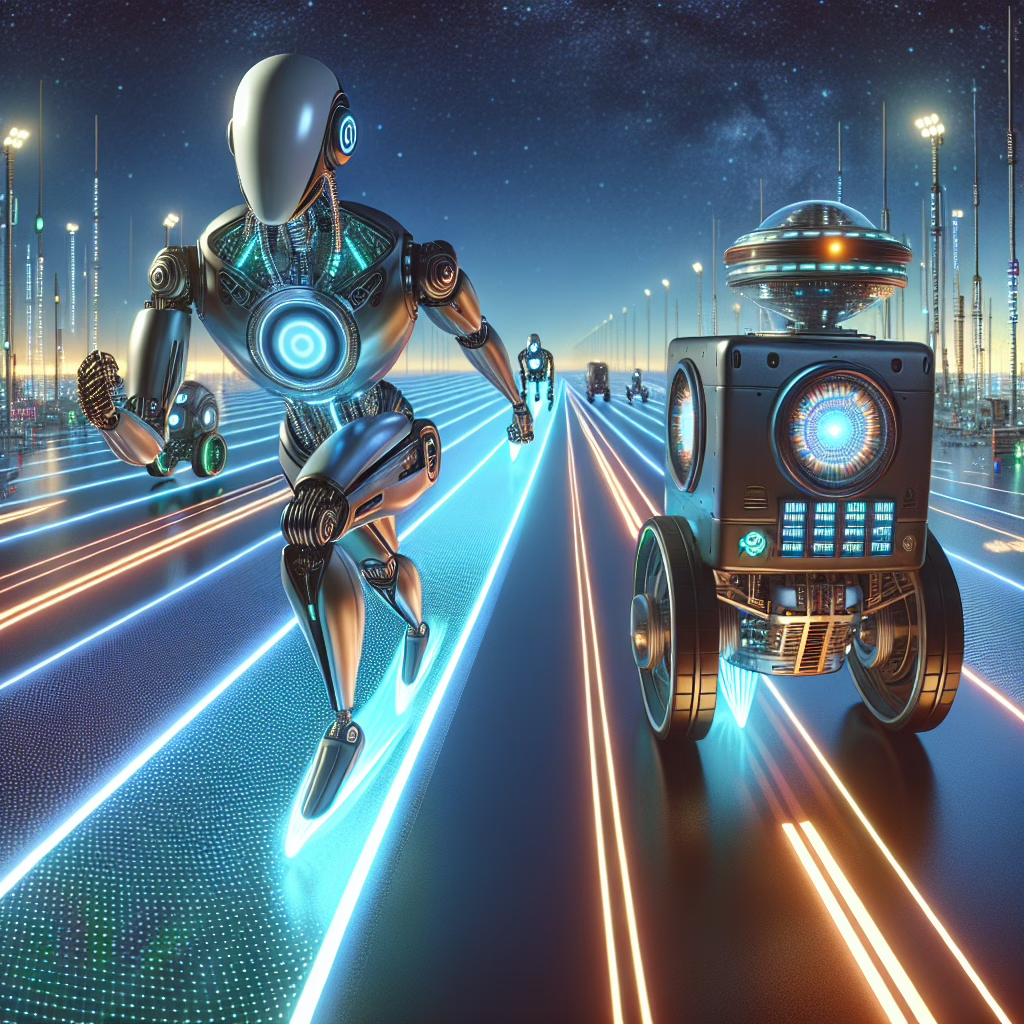In the ever-evolving world of technology, Google recently made waves by announcing that its AI behemoth is a whopping 24 times faster than the world’s best supercomputer. This bold claim raises eyebrows and invites curiosity about the implications for AI and computing power. Before we all rush to crown Google as the undisputed champion of the tech arena, let’s take a moment to unpack this claim with a sprinkle of humor and a dash of skepticism.
The Race for Speed: Google AI vs. Supercomputers
Imagine a race where Google’s AI is zipping past supercomputers like they’re stuck in rush hour traffic. According to Google, their AI has taken a giant leap forward, showcasing astonishing speeds that could leave traditional supercomputers in the dust. However, an analyst armed with nothing but a spreadsheet and a healthy dose of skepticism decided to challenge this assertion.
This analyst, who probably skipped breakfast in favor of crunching numbers, took it upon themselves to dissect Google’s claim. After all, if you can’t trust an analyst with a spreadsheet, who can you trust? The results? Well, they might not be what Google expected.
Why All the Fuss Over Speed?
So why does speed matter in the realm of AI and supercomputing? Let’s dive into the nitty-gritty. Faster processing capabilities enable AI systems to analyze vast datasets and generate insights at lightning speed—facilitating breakthroughs in fields ranging from healthcare to climate science. It’s akin to upgrading from a bicycle to a jetpack; sure, both get you there eventually, but one is definitely more thrilling!
However, just because something is faster doesn’t necessarily mean it’s better. Take a moment to think about your last experience with a fast-food drive-thru. Did speed translate into quality? Not always! Sometimes that quick burger comes with a side of regret (and fries). Similarly, Google’s AI might be fast, but can it deliver the accuracy and reliability we require?
Analyst’s Spreadsheet Shenanigans
The aforementioned analyst decided to take a closer look at the metrics behind Google’s claims. Armed with their trusty spreadsheet and perhaps an extra cup of coffee (because who doesn’t need caffeine when diving into data?), they analyzed benchmarks and performance outputs.
The findings were intriguing: while Google might have dazzled everyone with flashy numbers, some calculations suggest that when it comes to real-world applications, supercomputers still hold their own against this new-age contender. It’s like comparing apples to oranges—both are great in their own right, but they serve different purposes.
The Bigger Picture: What Does This Mean for AI?
This playful rivalry between Google’s AI and traditional supercomputers opens up a broader discussion about the future of AI. Will we see an era where supercomputers are rendered obsolete by agile AI systems? Or will they coexist like peanut butter and jelly—each bringing unique strengths to the table?
As companies continue to invest heavily in AI, it’s crucial for us as consumers to critically evaluate these bold claims rather than taking them at face value. Just remember: in technology as in life, it’s always good to question what you hear!
The Future is Bright (and Fast!)
No matter who wins this tech showdown, one thing is clear: these are exciting times! The advancements in AI and computing promise incredible opportunities for innovation across various sectors. Whether it’s enhancing our daily lives or solving complex global challenges, the potential is limitless—provided we keep our wits about us while speeding along this digital highway.
So next time you hear about groundbreaking advancements from tech giants like Google, remember that it’s important to look beyond the surface. Digging deeper can reveal fascinating insights that spark lively discussions (and maybe even some friendly debates).
What do you think about Google’s claims? Do you believe their AI really is 24 times faster than supercomputers? Share your thoughts below!
A special thank you to TechRadar for inspiring this article!

